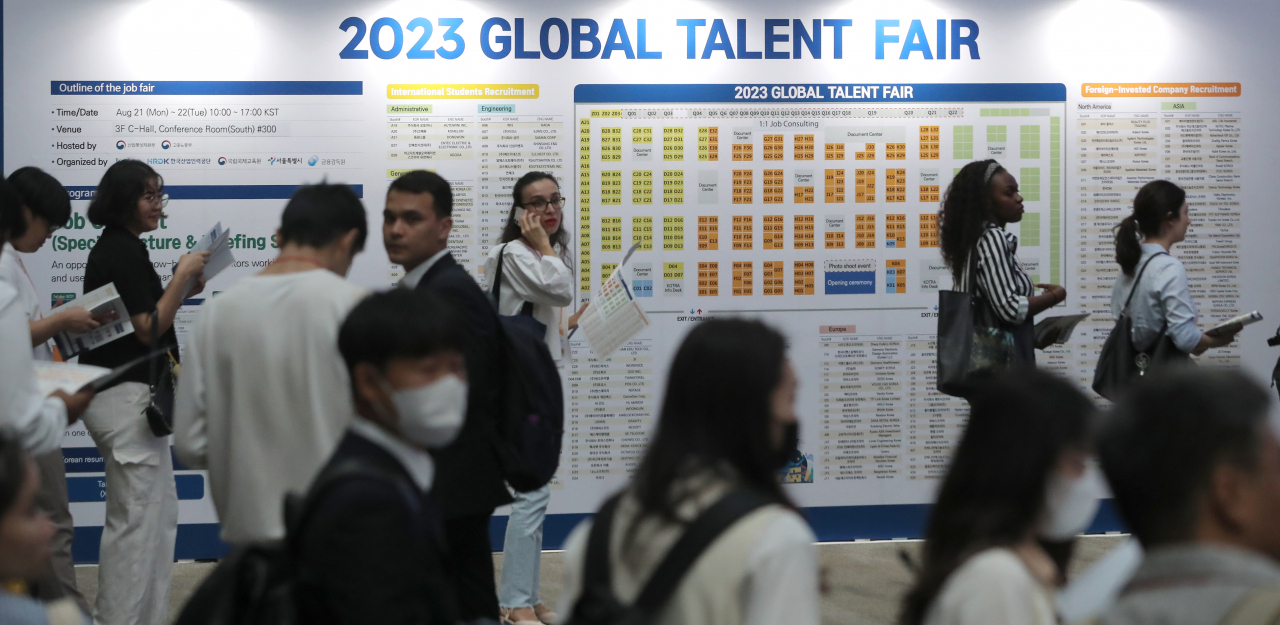Seoul trying to arrange North Korea
来源:Latest news
时间:2024-09-08 10:26:16
.jpg/dims/resize/740/optimize) |
| Hopes are rising here that the easing of tension on the Korean peninsula with Pyongyang's participation in the PyeongChang Winter Olympics will lead to talks between North Korea and the U.S. for denuclearization. / Graphic by Cho Sang-won |
By Kim Bo-eun
Attention is growing over whether thawing relations between the two Koreas on the occasion of the PyeongChang Olympics will ultimately enable Pyongyang-Washington talks on denuclearization.
The climate following the agreement for North Korea to take part in the Games in the South, with a backdrop of openness from Washington toward dialogue with Pyongyang, has been evaluated as the most appropriate timing to push for bilateral talks.
On Jan. 24, a high-level South Korean foreign ministry official told reporters, "(Washington's) conditions for talks have eased."
"U.S. Secretary of State Rex Tillerson stated Washington is ready to talk with Pyongyang if it doesn't make further provocations, and even President Trump has supported the idea," the official said on condition of anonymity. "Now is the best time for North Korea to come forward for talks."
On Jan. 6, U.S. President Donald Trump stated he would be willing to engage in direct talks with North Korean leader Kim Jong-un, in a news conference at the Camp David presidential retreat.
The remarks came after Tillerson stated Washington was open to dialogue with Pyongyang _ without any preconditions _ in December.
"We're ready to have the first meeting without precondition," he said at an event at the Atlantic Council, a think tank in Washington. "Let's just meet. And we can talk about the weather if you want."
This was a new diplomatic overture. Previous administrations had called for denuclearization as a precondition for talks with the reclusive regime.
The official added that the South Korean government does not oppose the idea of Pyongyang-Washington talks taking place first, but stated that Seoul's participation at a later stage should be guaranteed.
At the same time, the official stressed maintaining sanctions and pressure on North Korea were necessary to bring the state to the negotiation table.
Easing tension
Last year, North Korea conducted multiple provocations, including the launch of three intercontinental ballistic missiles and a sixth nuclear test in September.
"Last September and October, proposals for dialogue were impossible," the ministry official said.
However, tension on the Korean Peninsula has eased in the New Year.
A series of inter-Korean talks took place last month, the first in almost two years, to discuss North Korea's participation in the Olympics, after its leader Kim expressed his willingness to send a delegation.
The Koreas agreed for athletes of North and South Korea to make a joint entrance during the Olympics opening and closing ceremonies under a "unification flag" and to field an inter-Korean women's ice hockey team.
The largest yet delegation from the North is set to come to the South for the Olympics _ a 230-member cheerleading squad, a 140-member orchestra, a 30-member taekwondo demonstration team, reporters and 22 athletes as well as high-level officials.
The Koreas also arranged multiple exchanges ahead of the Games, including joint-training and arts performances. After two years, the Panmunjeom communication line and the West Sea hotline were reopened, as well as land and air routes.
The liberal Moon Jae-in administration, which supports a policy of engagement and reconciliation, has reiterated its stance to make the Games an opportunity to enable Pyongyang-Washington talks to take place on denuclearization.
Meanwhile, the ruling party's chief stated last month she was willing to act as a bridge for the U.S. and North Korea if the latter was ready for talks.
"I and the Democratic Party of Korea (DPK) are determined to arrange dialogue between Pyongyang and Washington to coincide with inter-Korean dialogue," DPK Chairwoman Rep. Choo Mi-ae said in a press conference marking the New Year.
The chairwoman has consistently pushed for peace overtures.
Bumpy road
However, it appears it could take some time before Pyongyang and Washington sit down for talks, considering their latest postures.
The Koreas had agreed to host a joint cultural performance at the North's Mount Geumgang ahead of the Olympics. But Pyongyang abruptly called off the event, citing South Korean media's critical reports of its military parade scheduled for Feb. 8.
The annual event is held to celebrate the founding of the regime's armed forces. However, it is seen as a military provocation, as the parade incorporates weapons to show off its military prowess.
Citing the military parade, the media reports raised skepticism over Pyongyang's sincerity toward progress in dialogue with the South to achieve peace on the peninsula.
According to a CNN report, Pyongyang will show off multiple long-range missiles, including the intercontinental ballistic Hwasong-15 missile, which the regime test-launched in November.
Amid these developments, the U.S. also appears to be taking a harder stance toward North Korea.
Last week, Washington dropped its candidate for ambassador to South Korea, Victor Cha. This was seen as stemming from differing opinions Cha had over a possible "bloody nose" strike against Pyongyang aimed at curbing its provocations, put forward by Trump's advisers.
Media have interpreted the move as the White House seriously considering the option of a limited strike on the North.
In his State of the Union address, President Trump referred to the North Korean leadership as "depraved" and threatening.
"We need only look at the depraved character of the North Korean regime to understand the nature of the nuclear threat it could pose to America and our allies," he said.
"Past experience has taught us that complacency and concessions only invite aggression and provocation."
A South Korean diplomatic source last week stated Washington's withdrawal of Cha was due to other factors, but did not specify what these were.
Regarding the White House's withdrawal of its pick for its envoy to Seoul, South Korea's foreign ministry spokesman Noh Kyu-duk said, "There is no dissonance regarding policies toward North Korea between the U.S. and South Korea. We are working closely on the matter."









